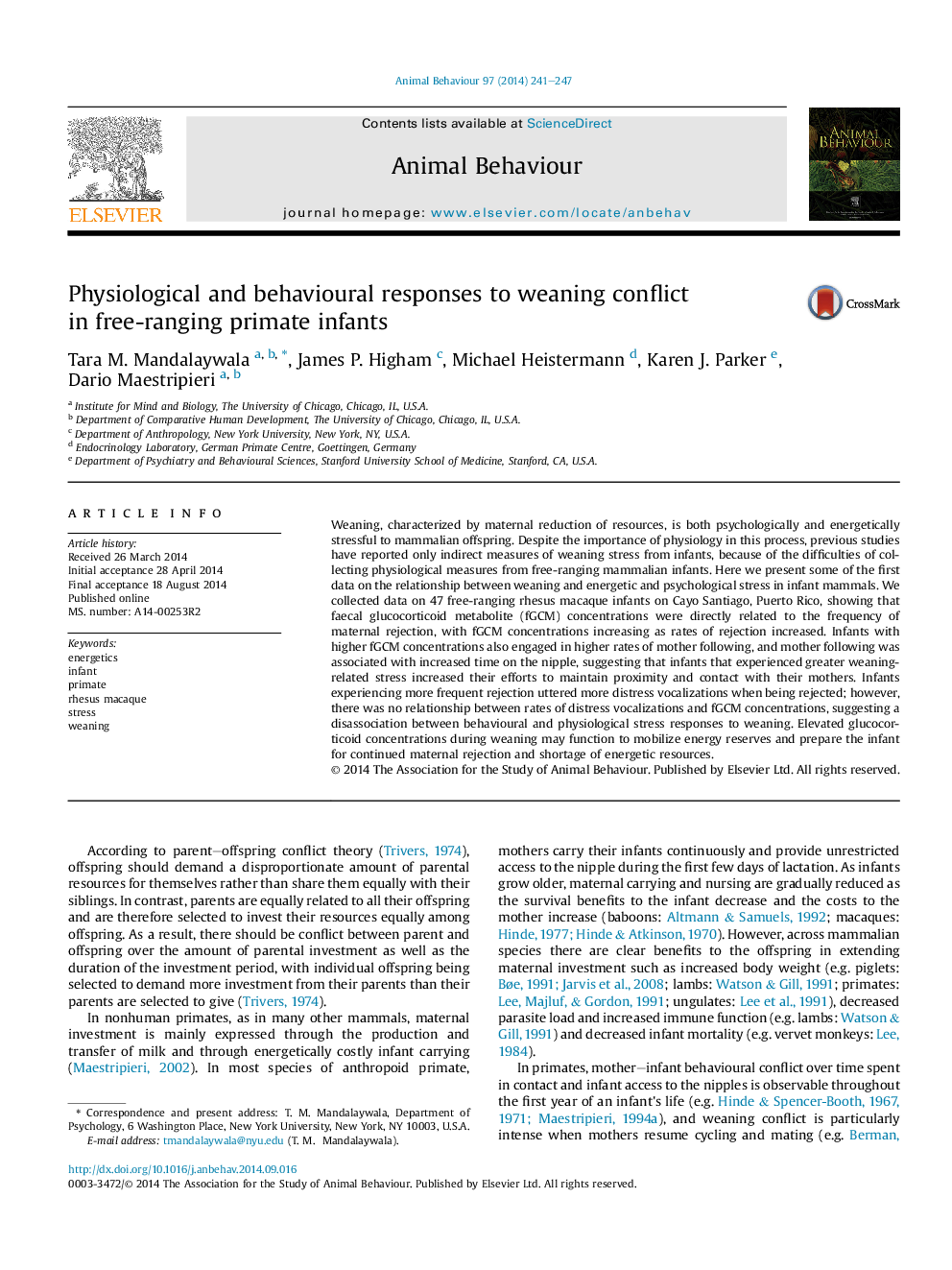| کد مقاله | کد نشریه | سال انتشار | مقاله انگلیسی | نسخه تمام متن |
|---|---|---|---|---|
| 8490329 | 1552231 | 2014 | 7 صفحه PDF | دانلود رایگان |
عنوان انگلیسی مقاله ISI
Physiological and behavioural responses to weaning conflict in free-ranging primate infants
ترجمه فارسی عنوان
واکنشهای فیزیولوژیکی و رفتاری به اختلال شکنندگی در نوزادان پرجمعیت آزاد
دانلود مقاله + سفارش ترجمه
دانلود مقاله ISI انگلیسی
رایگان برای ایرانیان
کلمات کلیدی
موضوعات مرتبط
علوم زیستی و بیوفناوری
علوم کشاورزی و بیولوژیک
علوم دامی و جانورشناسی
چکیده انگلیسی
Weaning, characterized by maternal reduction of resources, is both psychologically and energetically stressful to mammalian offspring. Despite the importance of physiology in this process, previous studies have reported only indirect measures of weaning stress from infants, because of the difficulties of collecting physiological measures from free-ranging mammalian infants. Here we present some of the first data on the relationship between weaning and energetic and psychological stress in infant mammals. We collected data on 47 free-ranging rhesus macaque infants on Cayo Santiago, Puerto Rico, showing that faecal glucocorticoid metabolite (fGCM) concentrations were directly related to the frequency of maternal rejection, with fGCM concentrations increasing as rates of rejection increased. Infants with higher fGCM concentrations also engaged in higher rates of mother following, and mother following was associated with increased time on the nipple, suggesting that infants that experienced greater weaning-related stress increased their efforts to maintain proximity and contact with their mothers. Infants experiencing more frequent rejection uttered more distress vocalizations when being rejected; however, there was no relationship between rates of distress vocalizations and fGCM concentrations, suggesting a disassociation between behavioural and physiological stress responses to weaning. Elevated glucocorticoid concentrations during weaning may function to mobilize energy reserves and prepare the infant for continued maternal rejection and shortage of energetic resources.
ناشر
Database: Elsevier - ScienceDirect (ساینس دایرکت)
Journal: Animal Behaviour - Volume 97, November 2014, Pages 241-247
Journal: Animal Behaviour - Volume 97, November 2014, Pages 241-247
نویسندگان
Tara M. Mandalaywala, James P. Higham, Michael Heistermann, Karen J. Parker, Dario Maestripieri,
